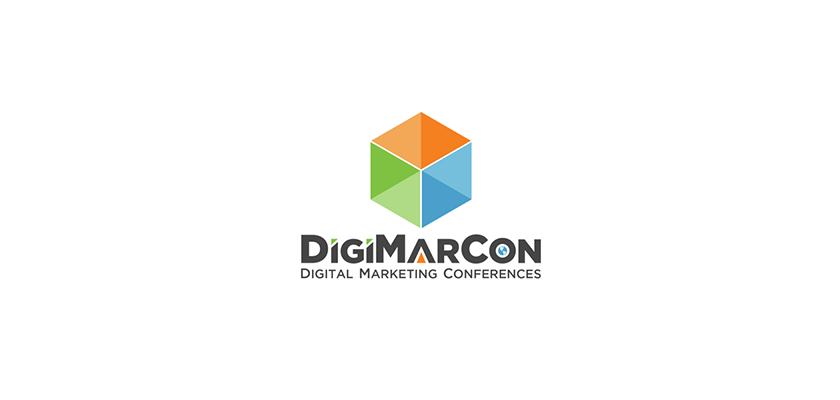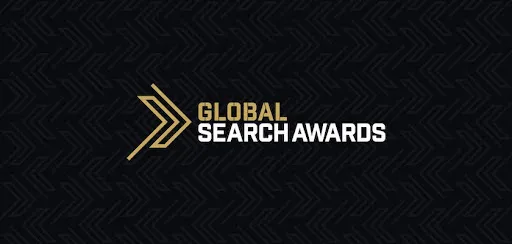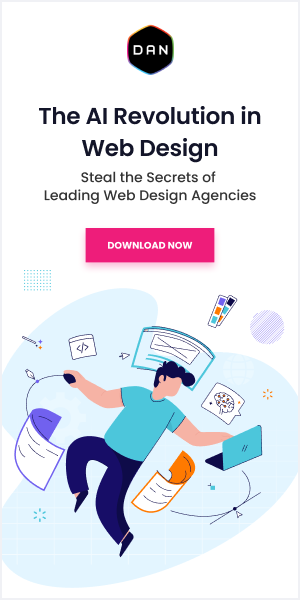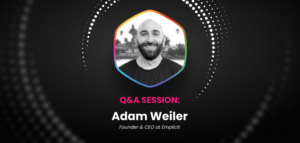
Sitback CEO Chris Mchugh Talks About the Digital Transformation of Businesses and Digital Agencies
CEO at Sitback Solutions, Chris McHugh joined our Q&A session. He shared his valuable insights into digital transformation of brands from different sectors. Also, he mentioned in detail how Sitback team has adapted to the realities of the pandemic and the “new normal”.
For more, you can enjoy reading the interview below:
Q1. Digital transformation for companies and brands has become almost mandatory in a very short time. As a digital agency, how are you handling this process? Can you please share some concrete examples elaborating your digital transformation process?
As an organisation, our digital transformation was already well underway, however recent events meant that we had to fast-track this process. Due to the nature of our work, our team is already using a range of online tools to complete their BAU tasks. The biggest change has been felt in the fact that these tools are now been using 100% online, rather than sharing space in the physical world.
To maintain clear channels of communication and keep everybody productive, we have turned to a number of tools: Microsoft Teams is our application of choice in keeping in touch. It reduces email volume and allows for much more informal interactions. We also leverage MS Planner for keeping on top of tasks, and One Note for syncing notes across devices. When we need to communicate with more than 6 people at a time, we fire up Zoom.
In remote workshops, we use tools like Figma and Miro to recreate the collaborative activities that usually require sticky notes, a whiteboard and lots of wall space. We have moved to a cloud-based VPN and our fileserver has been migrated to MS SharePoint, rather than living on a dedicated machine in our office.
Now that we’re able to move around a little more, we’ve even moved away from an old paper-based cab charge system and have adopted Uber for Business, so all our travel-related fees are handled online.
Q2. Can you share some precautions you have taken to continue business as usual during the COVID-19 outbreak?
We were closely monitoring the situation and made the decision early on to move our whole team to remote working in order to protect their health. This, combined with the online tools we had already adopted, meant that we were able to confidently continue to deliver work for our clients, knowing that our team weren’t taking any unnecessary risk through travel. To facilitate this, we had to update our insurance policy to cover equipment outside of the office, and we have invested heavily in the ergonomics of our team’s home working spaces – ensuring everyone has a good desk, comfortable chair, external monitors and any other equipment they need.
On top of the home office environment, in order to further protect our team’s physical and mental wellbeing, we set up a wellness fund, designed to cover the cost of counselling sessions or personal trainers. We have a social committee who regularly organise events for everyone to participate in, from online quizzes to magic shows for the whole family!
From a business perspective, we have a regular COVID WIP meeting on top of our regular meeting cadence. This is specifically to identify and address key risks associated with the pandemic, from examining our sales and invoicing pipeline, to reaching out to our clients to offer assistance. We have created a risk log to identify failure points so if someone becomes ill, we have a plan to mitigate the impact.
Finally, as the lease was up for renewal on our offices, we made the decision not to renew and instead continue with our remote work environment. This has enabled us to reinvest the money associated with physical premises into supporting and developing our team, training, equipment and a buffer to prepare for the impact of a recession. While we do fully intend to have an office space again in the future, this change allows us the time to reimagine what that office space should look like and how our team will interact with it.
Q3. What industries are your clients mainly focused on? How has COVID-19 affected these industries?
Our clients are mostly in Government, Finance, Travel and Entertainment.
In Government, across both state and federal, we are seeing a need to move away from paper-based forms to entirely online processes, ensuring the availability of information and therefore websites. Accessibility is a major concern now that so many people are having to interact with the world via a digital device.
From our experience, clients in the banking sector have been preoccupied with making sure their customers can access their money quickly and easily, as well as proving more lenient terms when it comes to lending. Overall, spending has dropped by over 30% and April had the lowest monthly spend since April 2011. Insurance companies have been putting new policies on hold while they deal with existing claims and the impact of travel restrictions.
Leisure and Tourism businesses have obviously been heavily impacted, and their focus has been on surviving but also regrouping and preparing to welcome customers back under a ‘new normal’. Unsurprisingly, public safety and hygiene is a primary concern, and digital tools and workflows are key in supporting this area.
Q4. What are your insights into digital transformation within different industries? How do you think they will evolve?
All industries will need to make a change to some degree. Successfully navigating this crisis demands boldness and learning. Organisations that leverage digital and a design thinking approach will undoubtedly see a significant first-mover advantage. Many will need to reinvent their core business model, putting an emphasis on data security, a remote workforce, automation and supply chain transparency and flexibility.
Businesses with a bricks and mortar presence will turn to eCommerce for flexibility and no longer needing to be tied to one location. This will enable them to improve the customer journey, by accepting multiple payment types, offering personalised recommendations and more convenient purchase flows.
As organisations acquire greater customer data, Business Intelligence (BI) Dashboards will become increasingly more vital in helping to understand this data to inform strategy.
Investment in proven and emerging digital tools will no doubt increase, like Data Management Platforms (DMP) and Customer Data Platforms (CDP); a more holistic and integrated platform for businesses to be able to orchestrate machine learning and AI into real-time decision making and, for example, ‘next best action’ workflows. Connecting all these tools together will see the increase in ‘Data Lakes’, although no clear off-the-shelf solution exists for this at present.
Q5. Companies are now investing more on various digital channels. Based on your know-how in digital marketing, which sectors should focus on investing in which digital channels?
Simply put, every sector should be investing in digital channels and we suspect this situation will encourage people to invest in novel ideas that would likely have been overlooked in the past.
The education sector will be particularly interesting, especially in higher education. The past few months have proven that remote learning needs to be a clear component of their business strategy. Simply sharing a PowerPoint presentation over Zoom won’t cut it. Online lectures need to become more collaborative. The ‘digital campus’ needs to be carefully designed.
We foresee AI-powered chatbots becoming a defining feature of tomorrow’s eLearning space – the ability for a tool to continually assess a student’s performance and adapt the curriculum to develop their weaknesses, all via a familiar interface. This will allow teachers to focus more on interactive demonstrations, pastoral care and assisting students with in-depth learning.
Q6. After the COVID-19 crisis, it is expected that the need for digital agencies will increase. Companies will invest in digital more than ever. In this case, why do you think they should partner with your digital agency?
We offer a broad range of services, including Strategic Consulting, UX Design, Software Development and ongoing 24/7 Support & Optimisation.
We are a human-centred design agency, which means our solutions are built for the human experience. The psychology background of our Experience Design team means that we can understand both the user and the business context. A key component of our solution research and design phase involves our team facilitating workshops to extract different opinions and understand business goals. We are then able to map the human experience with business requirements and user needs. We have an in-depth understanding of human psychology and cognitive biases, which enables us to take the guesswork out of solution design.
Furthermore, for over 15 years, we have been delivering digital solutions that connect disparate systems to improve workflows. Our excellence of execution ensures that your digital transformation journey will be a safe one – we are well versed in the tools and techniques required to successfully conduct projects solely online. Through lived experience, we know what works!
Our development team has a strong technical heritage, working across multiple platforms and a broad range of technologies. We cover solution design, CMS and eCommerce implementation, 3rd Party API integrations, custom development and platform architecture.
Most importantly, we value long term relationships and will be your trusted advisor for the journey.
Q7. Are there any practices that you have adjusted during COVID-19 that you would like to continue after this crisis ends? (e.g. remote working)
Many of our people have enjoyed the shift to home working and so since ending the lease on our offices, we are actively planning what our new working environment will look like with their input. Things don’t need to be the same as they used to be. Now is our opportunity to reflect on what works and what doesn’t. Designing the future of our business is a liberating and exciting process!
As a part of making sure our whole team feels connected and up to date, our meeting cadence has shifted significantly. We meet more often but for less time. Since no one is commuting anywhere, we’re more available and more punctual. We have clearly defined agendas for each meeting, for example, our daily WIP meetings are fast and efficient following a best/next/help structure. Each person has 2 minutes to cover off the best thing that happened to them, or that they are grateful for since we last met. They then cover what their focus is for the day and finish off with a request for any help needed from the team. This format results in a much more positive frame of mind and keeps us moving forward.
Our ‘Wellness Fund’ has proven very successful, so we will continue to develop this offering in order to ensure it meets the needs of our team and supports their physical and mental wellbeing.
Q8. How does being a DAN member contribute to your agency’s success?
DAN has helped us to remain visible through this difficult time. By showcasing our company, both through our agency listing, but also through our content partnership, DAN are helping people discover our services across the world, and enabling us to have meaningful conversations with organisations that need human-centred, strategic and pragmatic solutions to their business challenges.




















